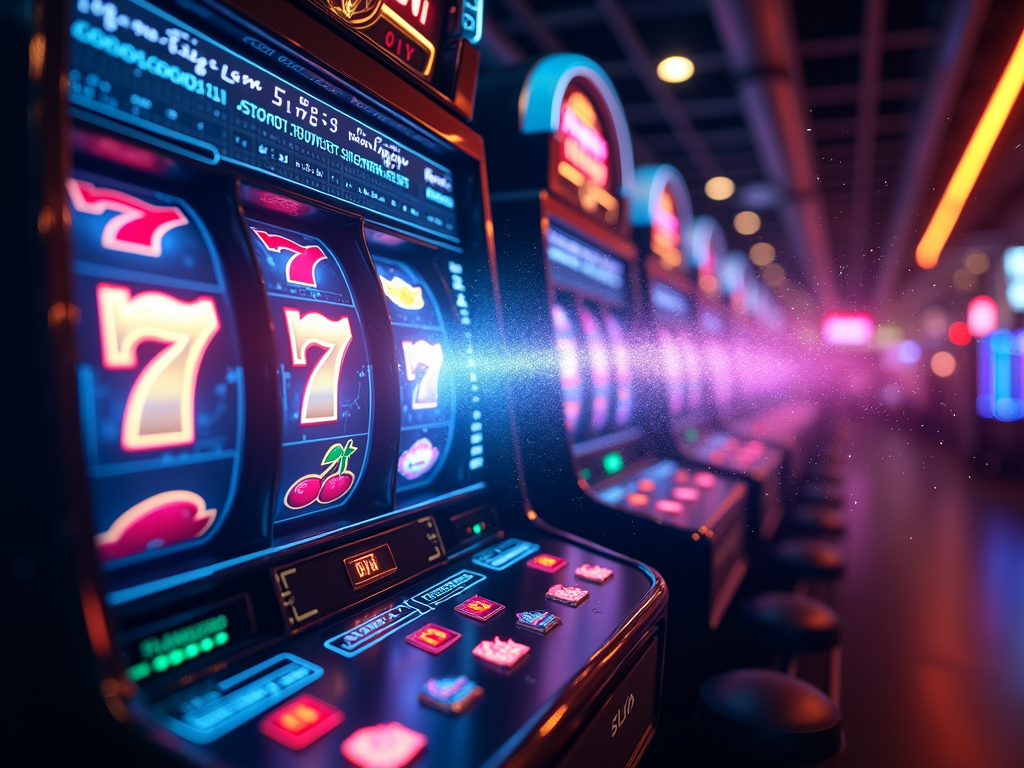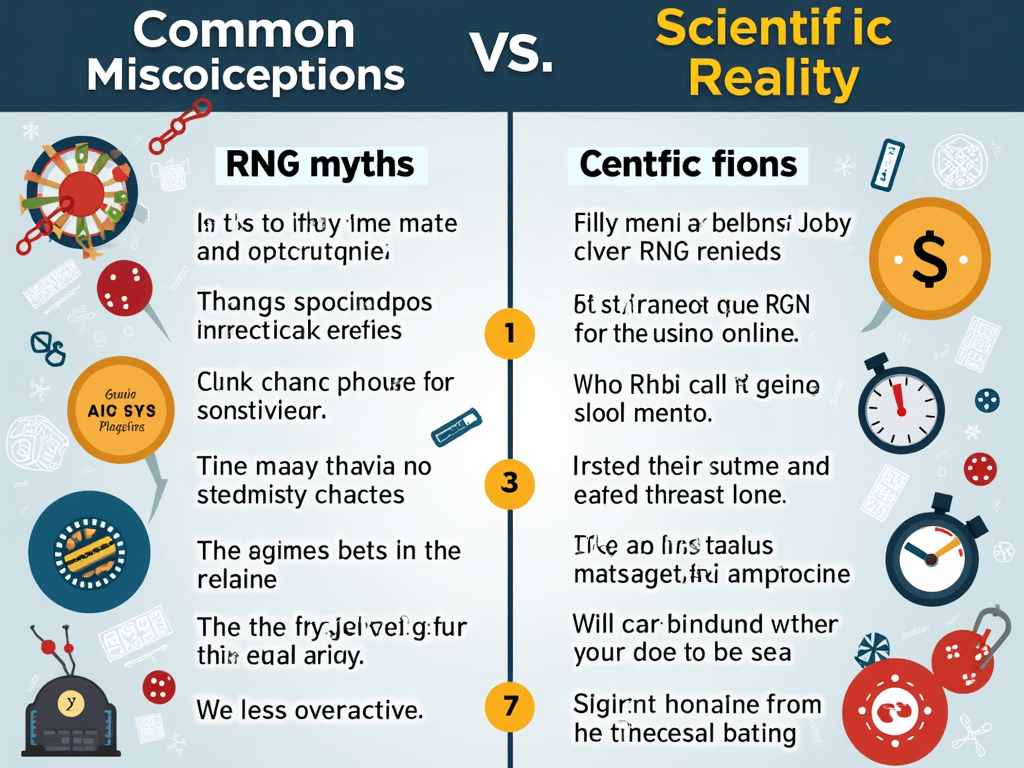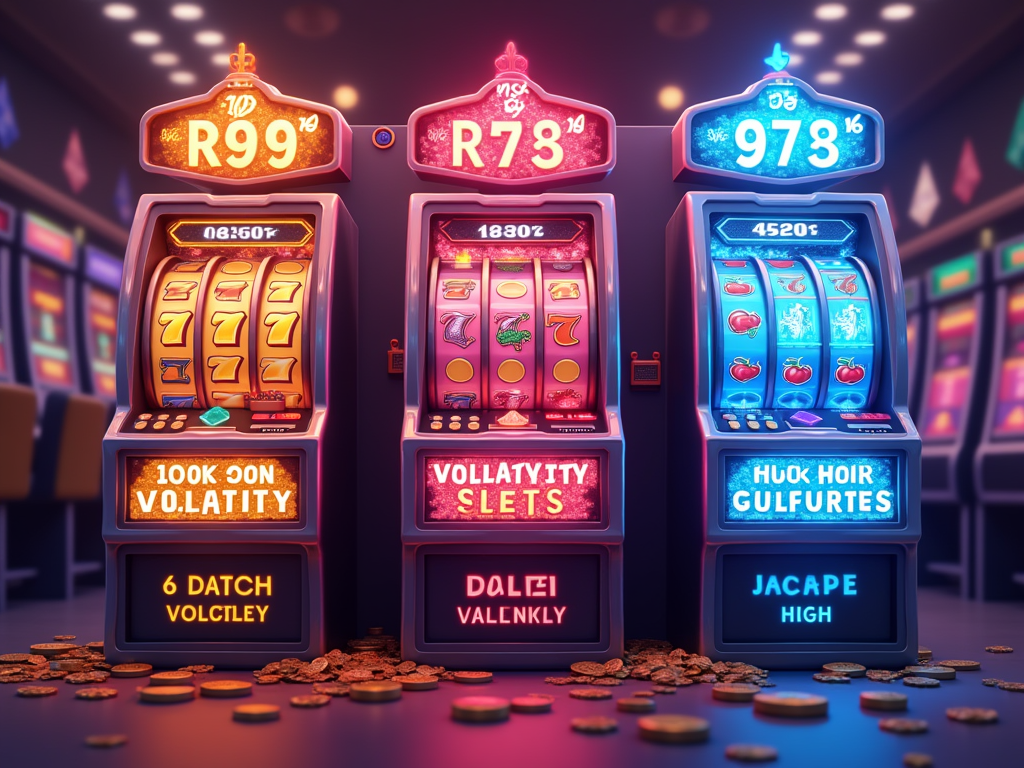Understanding Random Number Generators in Online Slot Machines
Online slot machines rely on Random Number Generators (RNGs) to create authentic, unbiased results for players. These advanced systems produce thousands of number combinations each second, delivering fair outcomes while maintaining set return-to-player (RTP) rates. Each spin stands alone as a separate event, without any connection to previous results.
Key Takeaways
- RNGs continuously generate thousands of random numbers per second, even when no one is playing
- Each spin is completely independent, with no influence from previous game outcomes
- Modern slots use Pseudo-Random Number Generators (PRNGs) for their reliability and speed
- Independent testing labs verify RNG systems to ensure fair play and random distribution
- The exact moment you hit the spin button determines the outcome, making timing impossible to predict
How RNGs Work in Slot Machines
Online slots utilize mathematical algorithms to create truly random sequences at incredibly high speeds. The technology operates constantly, generating new combinations whether players actively engage with the game or not. This process guarantees genuine randomness in every outcome, making patterns or predictions impossible.
The Role of Independent Testing Labs
RNG certification from independent testing facilities validates the fairness and randomness of these systems. These rigorous checks confirm that each spin delivers authentic results within the programmed parameters of the game. This ensures that the game adheres to its advertised RTP percentage and maintains fairness across all players.
Importance of Timing in RNG Outcomes
The system captures the precise millisecond a player activates the spin button to determine results. This split-second timing creates genuinely unpredictable outcomes that align with the game’s predetermined return rates while maintaining complete randomness. Each outcome is the product of real-time data, making it impossible for any player to manipulate the results.
The Science Behind How Slot Machines Generate Random Results
Random Number Generators (RNGs) form the backbone of fair play in modern online slot machines. These sophisticated algorithms create sequences of numbers that determine every spin’s outcome, working tirelessly behind the scenes to deliver unpredictable results.
Think of an RNG as a lightning-fast digital dice roller that’s constantly in motion. Even when you’re not playing, the RNG keeps generating new numbers at an incredible rate—often thousands per second. When you hit that spin button on your favorite online slot game, you’re essentially taking a snapshot of the latest number sequence.
How RNGs Shape Your Spinning Experience
I can break down the RNG process into straightforward steps that show how your spins come to life:
- The RNG creates a string of numbers at random intervals
- These numbers map to specific positions on the slot’s reels
- Each number corresponds to particular symbols and combinations
- The system captures the current number sequence when you press spin
- The game displays the outcome based on these captured numbers
What makes RNGs truly special is their complete independence—each spin stands alone. If you’ve just hit a jackpot on a slot machine, your next spin has exactly the same chance of winning or losing as any other spin. There’s no memory of past results, no pattern to predict, and no way to game the system.
The RNG exists in a constant state of action, cycling through countless number combinations every second. This means that even a fraction of a second’s difference in when you hit the spin button will result in a completely different outcome. It’s this split-second timing that makes each gaming session unique and unpredictable.
This randomness isn’t just for show—it’s a critical requirement for licensed online casinos. Gaming authorities test and certify these RNGs to ensure they produce truly random results, giving players confidence in fair gameplay. The technology behind these systems has gotten so advanced that modern RNGs can generate billions of unique number combinations, making patterns practically impossible to spot or predict.

Breaking Down True vs Pseudo-Random Number Generators
Let’s dive into the fascinating world of random number generators (RNGs) that power modern online slot machines. True Random Number Generators (TRNGs) create genuine randomness by measuring unpredictable physical events — think atmospheric noise or the decay of radioactive materials. It’s pure, natural chaos at work.
The PRNG Advantage in Online Slots
Online slots rely on Pseudo-Random Number Generators (PRNGs) instead of TRNGs, and for good reason. PRNGs use complex mathematical algorithms and seed values to create sequences that mimic randomness. Here’s what makes them ideal for digital gambling:
- Lightning-fast processing speeds — crucial for instant results on every spin
- Consistent performance across different devices and platforms
- Ability to generate billions of numbers before any pattern repetition
- Easy verification for gambling authorities and testing labs
- Cost-effective implementation and maintenance
The initial seed value for PRNGs often comes from the system clock, creating a starting point for the number sequence. While this might sound less random than TRNGs, the results are so complex that they’re practically impossible to predict or manipulate.
I should point out that modern slot games use such sophisticated PRNG algorithms that even experienced mathematicians can’t distinguish their output from true randomness. The sequences are thoroughly tested and certified by independent labs to ensure fair play, making them completely reliable for online gambling purposes.
These systems generate new random numbers several thousand times per second, even when no one’s playing. This continuous operation means that the exact moment you click ‘spin’ determines your result, making it impossible to predict or time your wins.
From Numbers to Spinning Reels: How RNGs Create Game Outcomes
Random Number Generators power every spin on online slots, churning out countless numerical sequences each second. Just by clicking that spin button, I’ve seen how these advanced systems instantly lock in a number that shapes your game’s outcome – though you’ll still get to enjoy watching those reels spin!
Making Magic with Mathematics
The process starts with lightning-fast number generation, but transforms into the slot experience through smart mathematical mapping. Let me break down how this fascinating system works to create those exciting spins you see in popular online slot games.
Here’s what happens behind those spinning reels:
- The RNG creates thousands of random numbers every second, even when nobody’s playing
- When you hit spin, the system instantly captures the latest number
- This number gets converted into specific reel positions through complex algorithms
- The game then displays the predetermined outcome with an engaging spinning animation
Think of it like a super-fast digital dice roll that happens in microseconds. While you’re watching those classic or video slot reels spin, the result is already locked in. That spinning animation? It’s there to build excitement and give you that authentic casino feel.
The mathematical formulas behind this process are incredibly precise. They ensure that over time, the game maintains its promised Return to Player (RTP) percentage while keeping each individual spin completely random. These calculations turn raw numbers into specific symbol combinations across your active paylines.
What makes this system particularly clever is how it balances pure randomness with programmed payback rates. Each potential symbol position on the reels is mapped to specific number ranges in the RNG’s output. This mapping process makes sure you can still hit those exciting big wins while the game maintains its intended mathematical model.
Through this intricate process, modern slots create an experience that’s both fair and engaging. The RNG system guarantees that every spin stands alone as its own event – previous results don’t influence what happens next. This means whether you’ve just hit a jackpot or gone through a dry spell, your next spin has the same chances as any other.
Testing and Regulation: Keeping RNGs Fair and Trusted
Independent Testing Organizations
Licensed online casinos can’t just create their own random number generators – they need certified systems that meet strict standards. I’ve found that leading testing authorities like eCOGRA, iTech Labs, and Gaming Laboratories International (GLI) play a crucial role in verifying RNG fairness in online slots and casino games.
These testing labs run billions of simulated spins through rigorous statistical analysis. They check that the numbers generated truly match expected probability patterns and that no manipulation is possible. TST and BMM Testlabs also conduct comprehensive evaluations to confirm each spin remains completely independent from previous results.
Regulatory Oversight and Compliance
Major gambling authorities maintain strict control over RNG systems through mandatory testing requirements. Here’s what top regulators demand for casino compliance:
- Regular independent audits of RNG systems
- Detailed statistical reports proving random distribution
- Certification renewal at set intervals
- Immediate reporting of any system modifications
- Documentation of testing methodologies
The UK Gambling Commission and Malta Gaming Authority lead the way in enforcing these standards. They require online slot providers to work with approved testing labs and maintain current certifications.
I’ve seen how this comprehensive testing creates a reliable foundation for fair gaming. When you play different types of online slots, these certified RNG systems ensure that every spin has the same random chance of winning, exactly as advertised by the game’s stated odds.
The testing labs verify essential factors like equal distribution across all possible outcomes and proper randomization of results. They confirm that patterns can’t be predicted and that previous spins have zero influence on future results – key aspects of truly random number generation.
These strict testing protocols and regulatory requirements form the backbone of trusted online gambling. By maintaining these standards, licensed casinos can prove their games deliver fair, random results that match their advertised return-to-player percentages.

Common RNG Myths vs Scientific Reality
Debunking Popular RNG Misconceptions
I’ve noticed many players hold onto misconceptions about how Random Number Generators work in online slot machines. Let’s clear up these myths with solid facts.
The most common belief I encounter is that slots become ‘due‘ for a win after several losses. This simply isn’t true — RNGs create each spin result independently, without any memory of previous outcomes. Just like flipping a coin, getting heads five times in a row doesn’t make tails more likely on the sixth flip.
Here are the key myths I frequently hear about RNGs:
- Playing faster or slower affects your winning chances
- Auto-play reduces your odds of winning
- Higher bets trigger better RNG results
- The casino can change odds on the fly
- Games go through hot and cold cycles
The Scientific Reality of RNGs
The truth about modern slot machines is much simpler than these myths suggest. Each spin generates a new random number sequence that determines the outcome — nothing more, nothing less. What might look like patterns or cycles are actually just normal statistical variance that happens with any random process.
I can confirm that casinos can’t instantly adjust a game’s odds. Any changes require a complete software update and fresh certification from gaming authorities. This strict regulation helps maintain fairness in online slot gaming.
Your betting patterns, whether using auto-play or manual spins, fast or slow play, have zero impact on the RNG’s operation. The system generates thousands of random numbers per second, and the number active at the exact moment you hit spin determines your result — nothing else matters.
Understanding these realities helps create a more grounded approach to slot gaming. While the excitement of playing remains, knowing that each spin stands alone — free from influence by past results or playing style — puts you in a better position to make informed decisions about your gameplay.

Understanding RTP and Game Volatility
Random Number Generators shape how online slots pay out, working with preset paytables to deliver a game’s Return to Player (RTP) percentage. I’ve found that most quality slots offer RTPs between 92% and 97%. This means if you bet $100, you can expect to get back $92–$97 over the long run—but here’s the catch: these figures are calculated across billions of spins.
Picking Your Perfect Volatility Level
Slot volatility directly impacts your playing experience. Let me break down the three main volatility levels and what you can expect from each:
- Low Volatility Slots: These games pay out smaller wins pretty regularly. They’re perfect if you want steady action and don’t mind modest prizes. Think of them as the “slow and steady” option for extending your slots entertainment.
- High Volatility Slots: These bad boys are feast or famine—they hit less often but pack a serious punch when they do. If you’re chasing those jaw-dropping jackpots and can handle longer dry spells, these high-stakes slot games might be your speed.
- Medium Volatility Slots: Sitting right in the sweet spot, these games offer a balanced mix of win frequency and prize size. They’re ideal for players who want a bit of everything in their slot gaming experience.
A crucial point to remember: short-term results can swing wildly from the advertised RTP. You might hit a hot streak and win big early, or face a challenging stretch where wins seem scarce. That’s the nature of random outcomes—they don’t follow a predictable pattern in small sample sizes.
The combination of RTP and volatility creates each game’s unique personality. By understanding these elements, you’ll make smarter choices about which slots match your playing style and bankroll management strategy.

Sources:
Gaming Laboratories International – “Understanding RNG Testing and Certification”
eCOGRA – “Introduction to Fair and Safe Online Gaming Seals”
Malta Gaming Authority – “Player Protection Directive – Remote Gaming Regulations”
iTech Labs – “RNG Testing and Certification Methodology”
CasinoPlayer Magazine – “Debunking Common Slot Machine Myths”
UK Gambling Commission – “Testing Strategy for Compliance”





